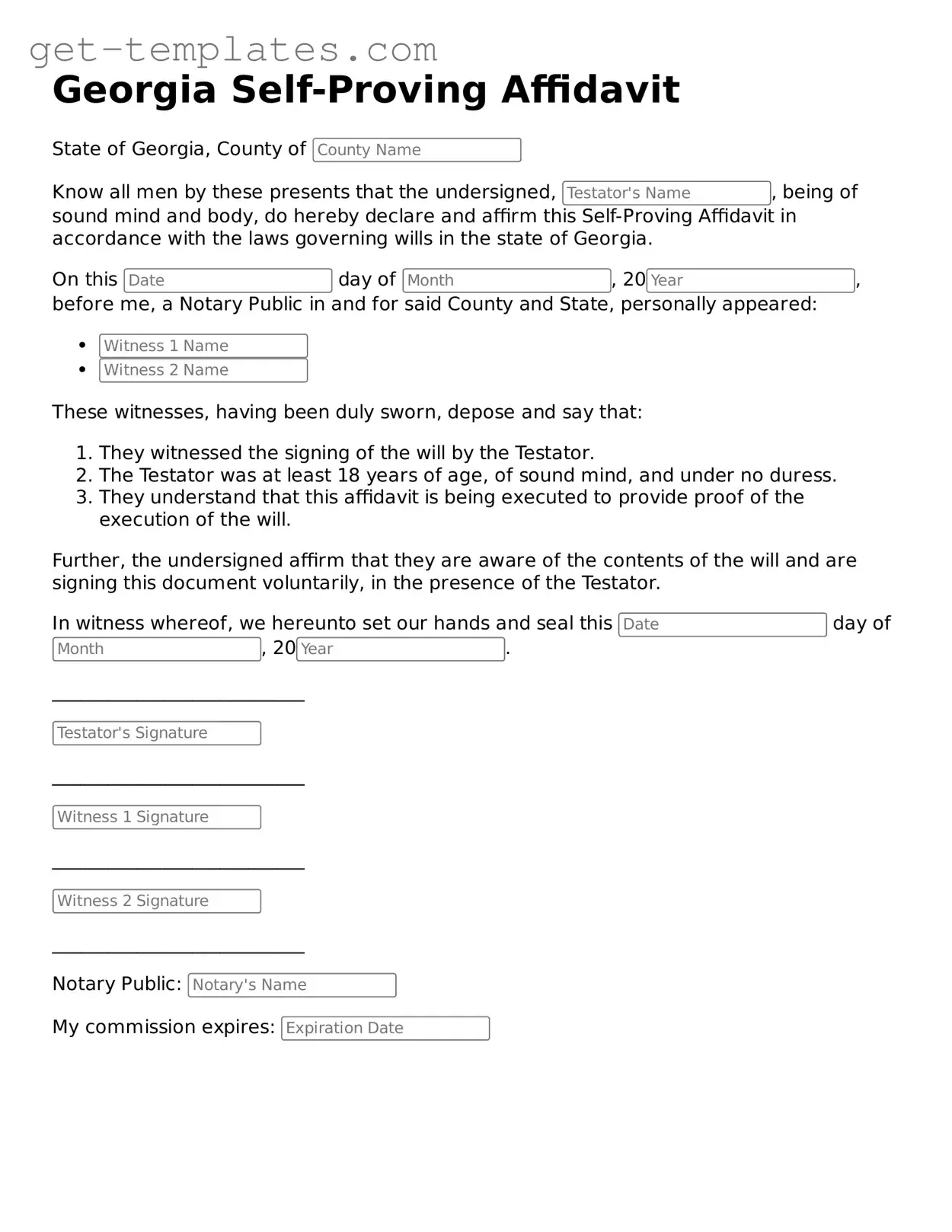Attorney-Approved Self-Proving Affidavit Document for Georgia
The Georgia Self-Proving Affidavit is a legal document that allows a will to be validated without the need for witnesses to testify in court. This form streamlines the probate process by confirming the authenticity of the will at the time of its signing. By using this affidavit, testators can ensure their final wishes are honored more efficiently.
Get Document Online

Attorney-Approved Self-Proving Affidavit Document for Georgia
Get Document Online
You’re halfway through — finish the form
Finish Self-Proving Affidavit online — edit, save, download made easy.
Get Document Online
or
⇓ PDF Form
